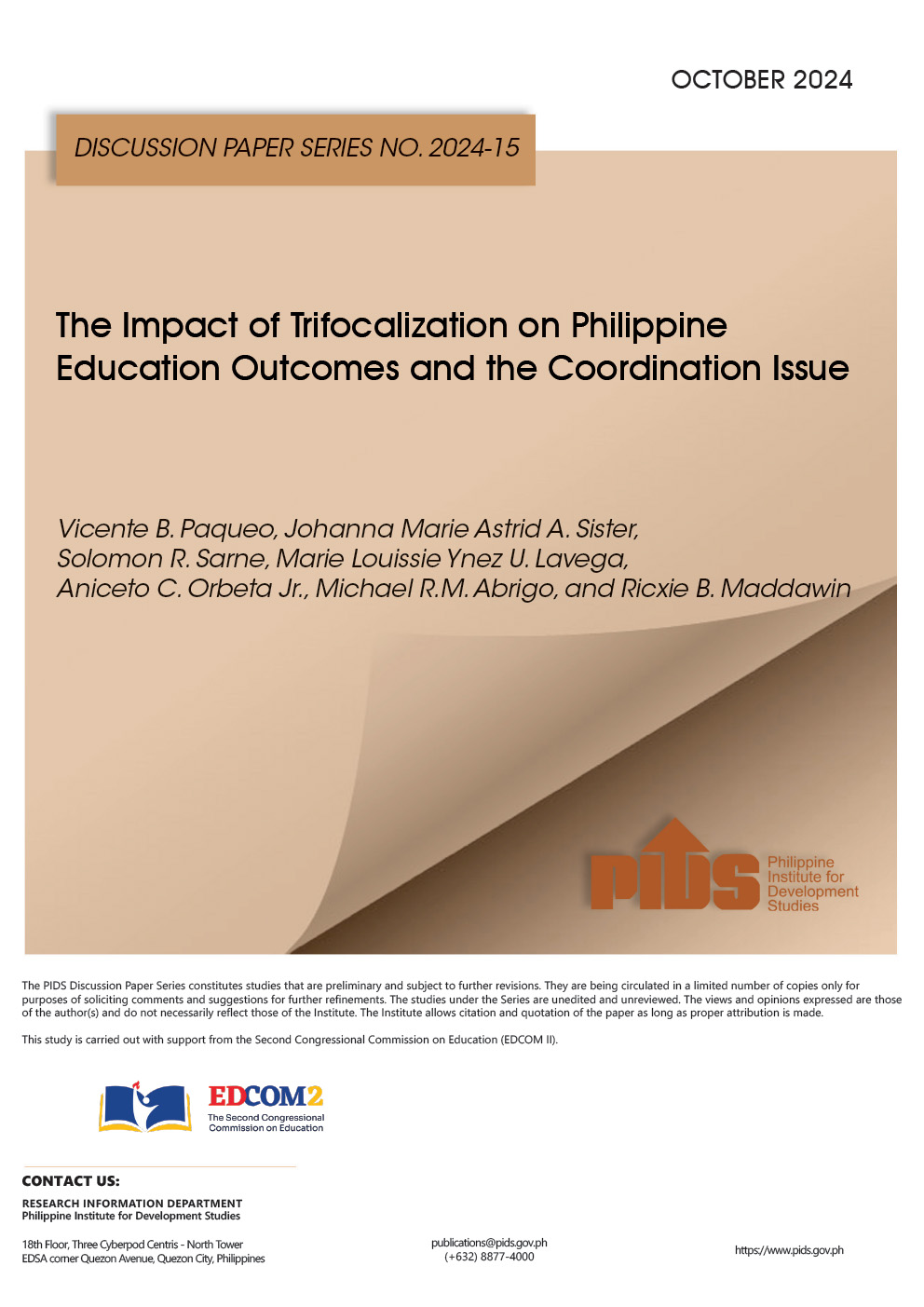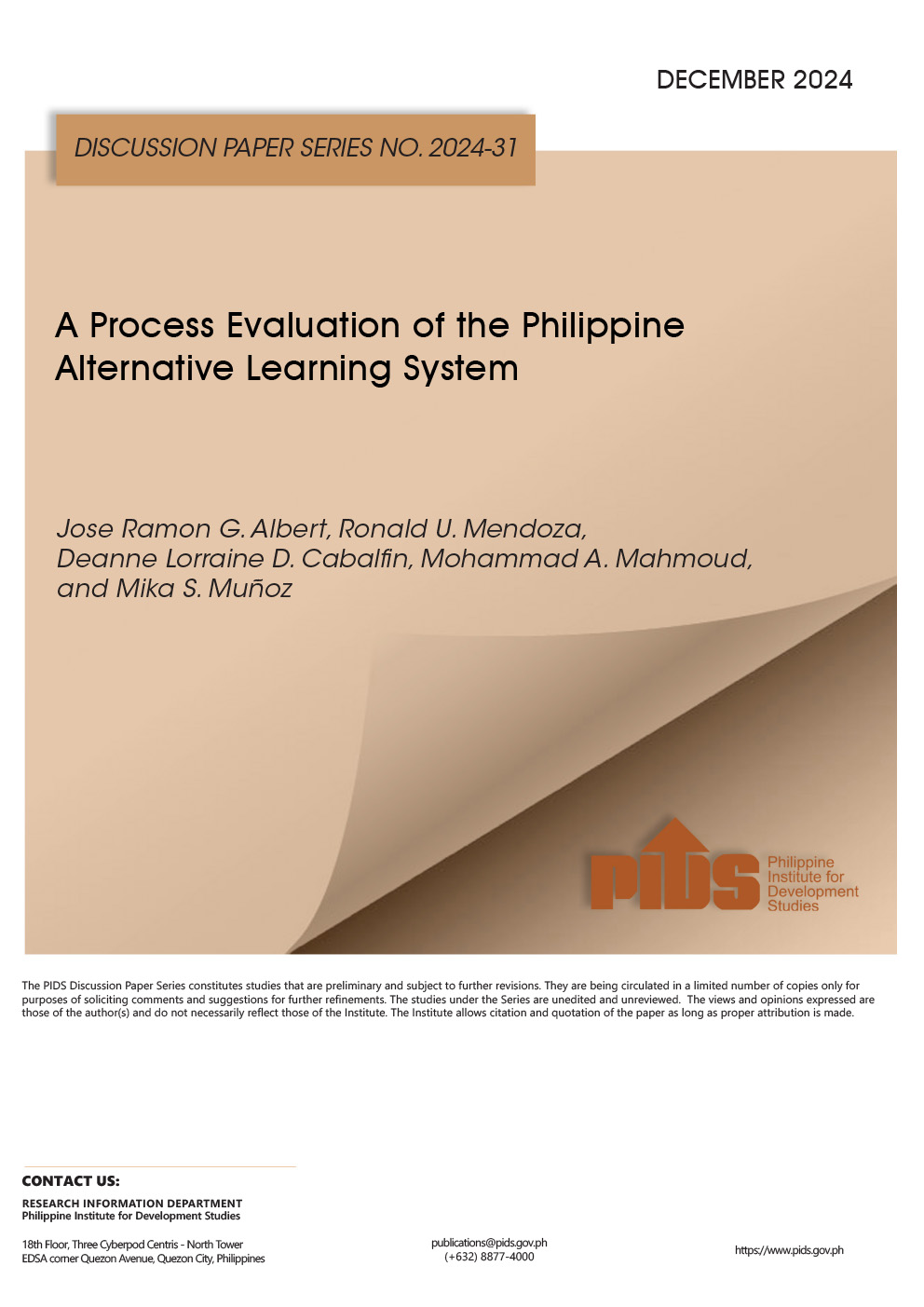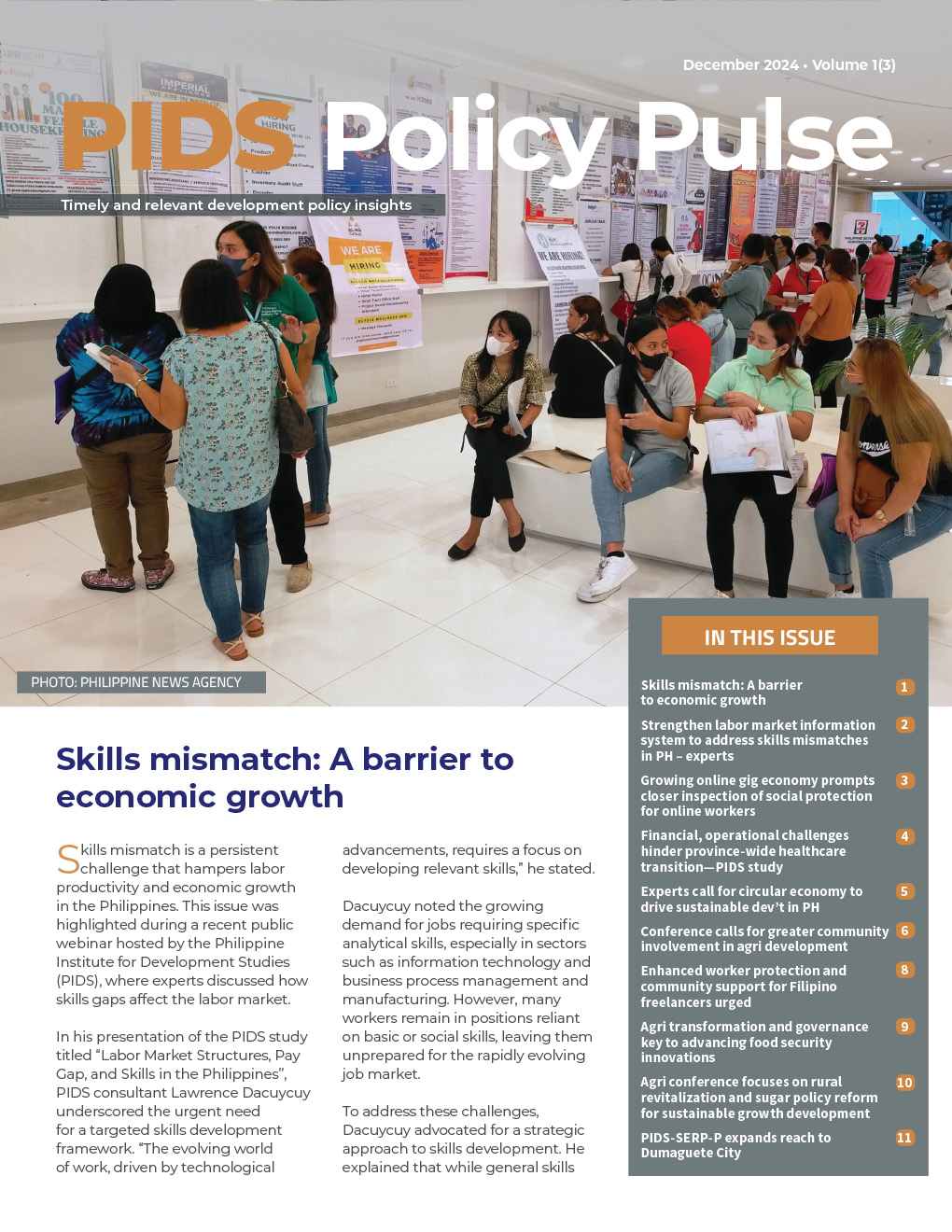Increasing the legal minimum wages (LMWs) is seen as more detrimental to the welfare of workers particularly the young and inexperienced, less educated and women laborers, the Philippine Institute for Development Studies (PIDS) said.
In the recently published paper titled “The impact of legal minimum wages on employment, income, and poverty incidence in the Philippines,” the state think tank said implementing higher LMWs in the country would reduce the work hours of average employees; decrease the employment probability of the young, inexperienced, less educated and women laborers; and reduce the average income and raise household poverty rate.
“(Higher LMWs) can be disadvantageous against the very groups that LMWs are intended to protect,” said PIDS research fellows Vicente Paqueo, Aniceto Orbeta and Leonardo Lanzona.
The PIDS noted the Philippines gives a higher minimum wage compared to its more progressive neighbors like Thailand.
“This begs to rethink the common belief of having massive employment expansion with rapidly rising wages as the key to increase the incomes of poor households and to change their poverty status. Demanding the government to impose higher minimum wages to move the poor out of poverty requires deeper thought,” PIDS said.
As of March 2016, the daily minimum wage in the National Capital Region (NCR) ranges from P444 to P481 for non-agriculture jobs and P444 for agriculture-based jobs.
The LMW is lowest in the Autonomous Region in Muslim Mindanao (ARMM) at P265 for non-agriculture work and P255 for agriculture work.
Citing various studies overseas, the PIDS researchers noted mixed effects on employment as a result of increases in the minimum wage. These include decreased employment of young people, decreased employment of unskilled workers, and decreased provision of in-house training to unskilled workers.
In the Philippines, the effect is immediately seen in decline in hours of work. The probability of gaining and retaining employment also falls between eight to 22 percent.
A 10 percent increase in LMW would lead to declines in labor participation rate by 6.36 percent (for all workers), by 5.97 percent and 3.64 percent (among teenagers and young adults), and by 2.36 percent (among workers with little or no education).
PIDS also noted a faster rise in LMW significantly increases poverty incidence by 1.7 to three percentage points.
“The average real income of households would have grown faster by about 20 percent – and household poverty would have been lower – if the LMW had increased more slowly over time,” said the researchers. “The total income of a household with just one minimum-wage earner is likely to be smaller than a household where the wife, and perhaps the older children too, can also work but as lower, market-determines wages.”
Average daily wages in the country have risen steadily since 2000.
To address the mixed effects of LMWs on the country’s labor force, PIDS recommends tempering demand for large increases in LMWs.
In theory, the impact of LMW on employment can be positive, negative or zero, depending on one’s assumptions about the market situation and the underlying mechanisms governing wages and employment decisions. Looking at the current empirical evidence, we similarly find that the LMW effects are mixed,” said the PIDS researchers.
“There is wisdom in the policy view of government to temper demands for larges rises in LMW,” they added. “It is important to stress that the government has yet to recognize and address the need to temper the discriminatory impact of LMWs on the employment opportunities of disadvantaged population groups.”
It also urged further studies on the tightening of the implementation of the current six-month regularization law and labor contractualization.
“During the recent presidential election season, many influential politicians promised to adopt more stringent measures to ensure that those regulations are effectively implemented and enforced. What is concerning in this regard is the lack of studies on the impact of those regulations,” it added.
PIDS said banning contractualization entirely may be more detrimental than helpful to workers.//
Minimum wage hike detrimental to less privileged workers — PIDS












